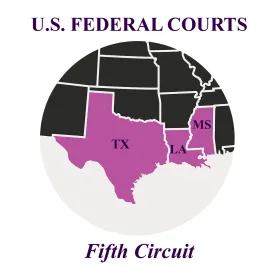In Trench Tech Int’l, Inc. v. Tech Con Trenching, Inc., the son of an owner of a company, who was an employee, downloaded design plans and other information and went to another company who used that information. No. 4:19-cv-00201-O, 2022 U.S. Dist. LEXIS 100280 (N.D. Tex. June 6, 2022). The company and the company that owned it sued the son for trade secret misappropriation and breach of fiduciary duty. The defendant moved for summary judgment, and the federal district court denied the motion. Regarding the breach of fiduciary duty claim, the defendant argued that he was only an employee of the first company and not its owner and therefore did not owe fiduciary duties to the owner. The court disagreed:
Trench Tech asserts a claim against Smith for breach of fiduciary duties, and it asserts claims against Tech Con, Conlon, and Smith for conspiracy to have Smith and Jeremy breach their fiduciary duties. Defendants argue that they are entitled to summary judgment on Trench Tech’s breach-of-fiduciary-duty claims because (1) Trench Tech cannot establish a fiduciary relationship with Smith or Jeremy, and (2) the claims are barred by the statute of limitations. First, Defendants argue that Trench Tech cannot establish a fiduciary relationship. Under Texas law, “[a]n informal relationship may give rise to a fiduciary duty where one person trusts in and relies on another, whether the relation is a moral, social, domestic, or purely personal one.” But “to impose such a relationship in a business transaction, the relationship must exist prior to, and apart from, the agreement made the basis of the suit.” Trench Tech has presented sufficient evidence for a jury to find that Smith and Jeremy owed fiduciary duties to Trench Tech. They were longtime employees of the family business and entrusted with confidential material. “Texas courts have long recognized that entrustment of trade secrets gives rise to a fiduciary relationship.” Defendants recycle their argument that Smith and Jeremy worked for Trench-Tech, Ltd., not Trench Tech International, and thus they owed no fiduciary duties to Trench Tech International. Once again, Defendants cite no authority restricting fiduciary duties to employer-employee relationships. The formalities of Trench Tech’s entity formation do not preclude a jury finding that Smith and Jeremy owed and breached fiduciary duties to Trench Tech.
Id. The court also held that the statute of limitations did not bar the plaintiff’s breach of fiduciary duty claim.




 />i
/>i

